Review of the Day: The Kind of Friends We Used to Be by Frances O’Roark Dowell
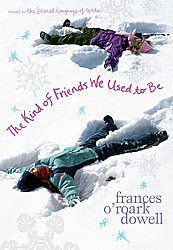
Small deviants aside, little kids are friendly folk. Catch `em young enough and you can turn them into friends if they both like making chocolate chip cookies and having sleepovers. They are discerning, but friendship often trumps their differences . . . for a time. Then puberty appears on the horizon and all bets are off. Suddenly kids have to form strategic alliances with their peers. And that friend you made in the second grade? Suddenly you’re beginning to realize that you two have very little in common aside from some common history. A fair amount of middle grade fiction gets devoted to this subject every year. Boys and girls go through it, often with a whole messload of hurt feelings along the way. But though it’s a sequel to "The Secret Language of Girls", Frances O’Roark Dowell’s "The Kind of Friends We Used to Be" stands on its own as an original understanding of what it means for a gal to navigate puberty without losing herself in the process. Startlingly fresh.
This time it began with shoes. Kate’s shoes. Kate recently decided that she wants to become a girl guitar player who can wear really awesome shoes that say, "Don’t mess with me". In the meantime her former best friend Marylin is trying to get in good with the cheerleader community of their school. Marylin and Kate used to be best friends, but after a nasty incident that happened to Kate the year before they’ve drifted apart. Now the two want to make up and be best buddies again, but it doesn’t always work out that way. Kate’s finding interests in some things, Marylin’s finding interests in others, and ultimately the question is going to come down to whether or not they want to be themselves or the kinds of people other folks want them to be.
ADVERTISEMENT
ADVERTISEMENT
Okay. So in the first paragraph I said that this book stands on its own. And it does, insofar as the author catches you up on some of the details. There was one moment, however, where my confusion could probably be directly attributed to not having read the previous novel. Chapter Two begins (called here "the stars fall over") and I’m merrily reading to myself. I read and read and read, and it occurs to me that the book has taken an odd turn. Why does our main character Kate suddenly care what the cheerleaders think? Have I gotten confused about her personality? I flip back, reread, and veeeery slowly I come to the realization that the point of view has switched. This isn’t a book that comes entirely from Kate’s perspective. Suddenly at the start of the second chapter we’re in Marylin’s head. That took some adjusting. As a new reader I’m not going to instantly remember any character’s name for at least a chapter or two. Felt like I needed a warning sign or something. A kid in a similar position would probably do what I did too.
Not that the dual p.o.v. isn’t a big charm in this book. Often we’ll read a losing-your-friend narrative and it comes entirely from the point of view of the loser, rather than the lose-ee. By switching between the two girls you get a more complex understanding of the situation. Plus I love the lack of a whine factor in this book. There is very little whining. Kate is losing Marylin as a friend and that hurts, but she doesn’t spend this whole novel bending over backwards trying desperately to do whatever she can to win her friend back. It’s funny but neither girl really wants to give up their friendship. But they’re like an old married couple that’s grown apart, had a big split, and want to find a way to make the relationship work again. Only they haven’t a clue how. Where’s the Emily Post book on making your old best friend your new best friend again? These gals would need it.
I don’t want to call them one-liners, but Dowell also has a way of writing a sentence that punches you in the gut with the familiarity of a given situation. For example, there’s the moment when Kate’s at Marylin’s sleepover, but she’s not blending in with the other girls. "She was feeling left out by people she didn’t even like. It was insulting." Been there. Had that experience. I bet a lot of other girls have too. I love the moment when Kate inwardly approves of Marylin not saying a word about her clunky boots. "In sixth grade she would have told Kate straight out how horrible she thought her boots were. Now she was trying to manipulate her. It was a big improvement, in Kate’s opinion." Dowell loves a good descriptive sentence too. "She was skinny and pale, with the kind of milky white skin you could see the veins underneath, like the little blue highway lines on a map." Heck, Dowell’s even good at identifying school types that all of us know/knew. Like the soccer player "with one of those outgoing personalities that made it impossible to know if she liked you or not, because she acted like everyone in the world was her best friend, and how could that be?"
There’s a moment when Marylin realizes that she doesn’t know where she fits anymore. The cheerleaders aren’t quite right. "She wished she could fit in with Kate, and sometimes she still did, but Kate was changing shape, it seemed to Marylin, and it was hard to know exactly how to fit in with her anymore." And that, in a nutshell, is the fate of many a childhood friendship that has hit the tween and teen years. There aren’t good guys or bad guys in these situations. Just kids who are growing up and figuring out that their personalities and interests are diverging. Nobody has quite tapped into that reality as well as Frances O’Roark Dowell either. This book looks like every other fluffy tween girly friendship book out there, but inside kids will find a thoughtful, reflective, and ultimately mature (not to mention funny) take on a difficult time. Looks like fluff. Has a brain.
On shelves now.
First Sentence: “When Kate decided to play the guitar, she realized she would need new shoes.”
Other Online Reviews:
Filed under: Reviews
About Betsy Bird
Betsy Bird is currently the Collection Development Manager of the Evanston Public Library system and a former Materials Specialist for New York Public Library. She has served on Newbery, written for Horn Book, and has done other lovely little things that she'd love to tell you about but that she's sure you'd find more interesting to hear of in person. Her opinions are her own and do not reflect those of EPL, SLJ, or any of the other acronyms you might be able to name. Follow her on Twitter: @fuseeight.
ADVERTISEMENT
ADVERTISEMENT
SLJ Blog Network
One Star Review, Guess Who? (#202)
Exclusive: Giant Magical Otters Invade New Hex Vet Graphic Novel | News
Parsing Religion in Public Schools
Take Five: LGBTQIA+ Middle Grade Novels
ADVERTISEMENT



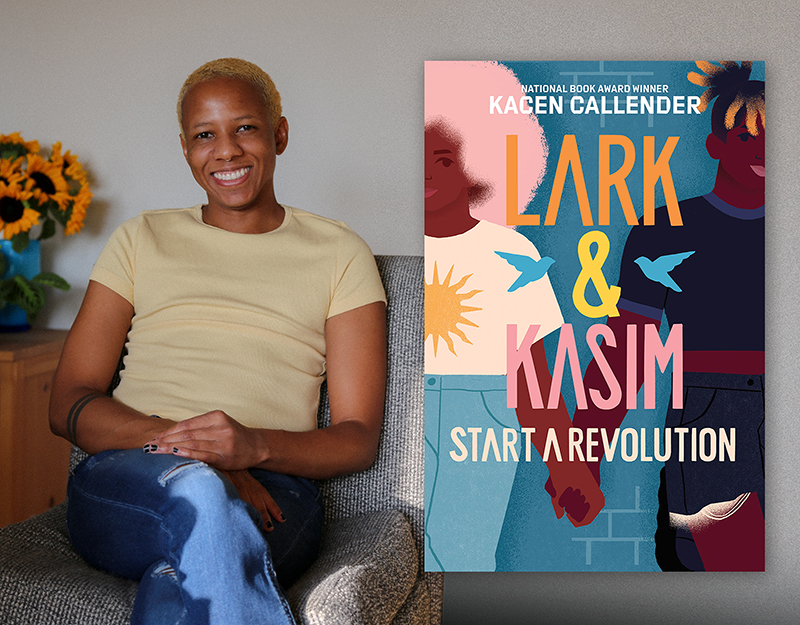
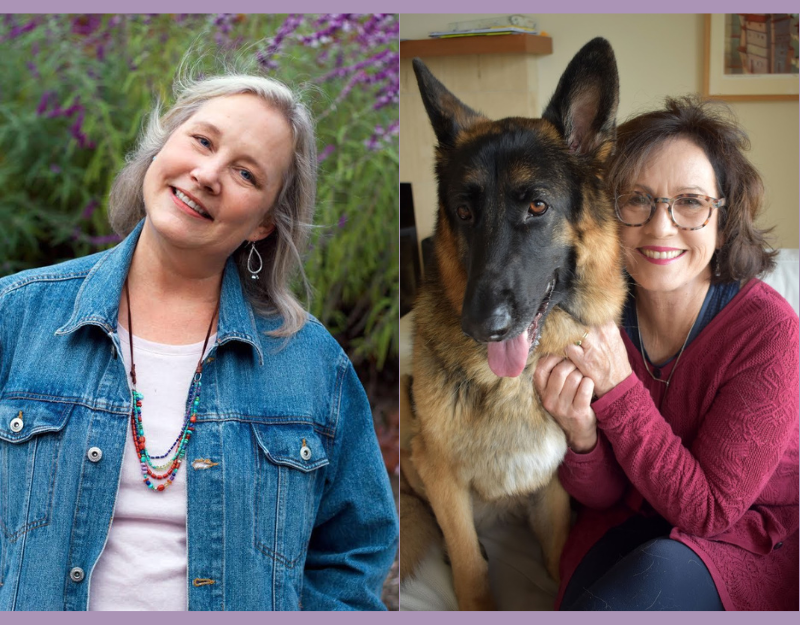
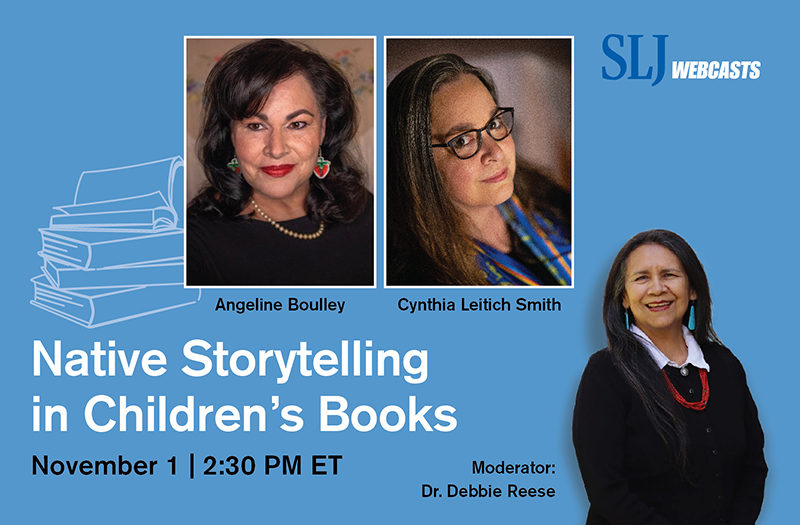
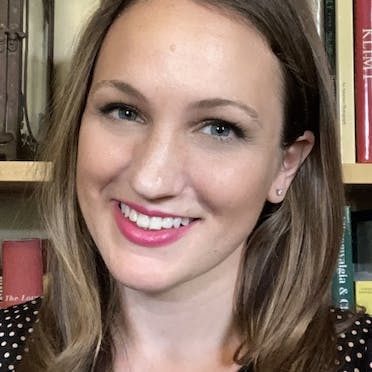

Your review totally sold me on this book.
Wow. that was a great opinionated piece. Forever live with the fact you can make sense out of books, their are few who can. others (the majority) just ‘throw in’ big words and add ‘like’ and ‘so kewl’ every sentence. 🙂 You’ve got my attention & the book sounds amazing from your description, but what about the puppie love between Andrew and Kate? What happened to them? Email me at lakni_w@hotmail.com.